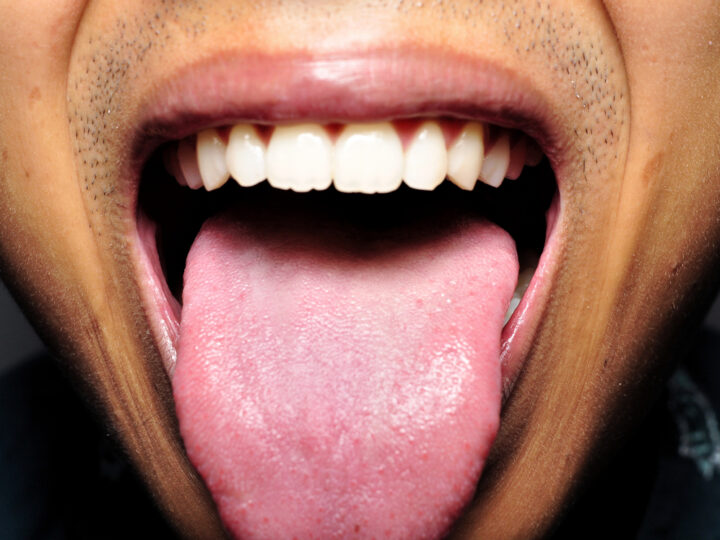HOW TO CONTROL CROHN’S WITH TCM
Manage Symptoms, Ease Pain & Encourage Remission

In the US, nearly 800,000 Americans struggle with the painful inflammatory bowel disease known as Crohn’s disease. Despite the large number of people with Crohn’s, little is known about it in the western medical world. Researchers and doctors don’t know why it happens, who will get it, or how to manage the symptoms. Though it’s been around for at least 30 years, there still is no cure.
Like western medicine, Eastern medicine traditions like Traditional Chinese Medicine (TCM) and Ayurveda don’t have a cure for Crohn’s. But these medical practices, sometimes called Complementary and Alternative Medicine (CAM) do offer some ways to manage symptoms, ease pain, and encourage remission of this unpleasant chronic disease.
What is Crohn’s Disease?
Crohn’s disease is a bowel disease that happens when a part of your gastrointestinal system becomes severely inflamed. Though inflammation usually occurs in the small intestine or the colon, it can happen anywhere along your GI system.
This inflammation causes different symptoms in different people. These symptoms, which range in severity, can include:
- diarrhea
- stomach cramps
- bloody stool
- fever
- fatigue
- poor appetite
- weight loss
- feeling as if your bowels aren’t empty after a bowel movement
- frequently feeling like you need to make a bowel movement
These symptoms can be fairly light or extremely severe, and can even change over time. That’s one of the reasons Crohn’s is so complicated to treat and, so far, impossible to cure. For those with extreme cases of Crohn’s complications and flare-ups can even be life-threatening.
Western Treatment for Crohn’s Disease
Medications
If you see a western doctor and are diagnosed with Crohn’s disease, you most likely will be prescribed one or more medications, including:
- Anti-inflammatory drugs: Crohn’s flare ups are caused by inflammation in the GI system, so to combat that, anti-inflammatory drugs like oral 5-aminosalicylates and corticosteroids are usually prescribed. Depending on which one you take, they can either calm intense flare-ups or promote long-term anti-inflammation.
- Immune system regulators: Sometimes, Crohn’s is caused by an overactive immune system. Your body thinks you’re sick or hurt, so it causes inflammation in an effort to get rid of harmful cells and bacteria. When this happens, doctors prescribe drugs known as immunomodulators, which can help control your immune system and prevent flare-ups.
Surgery
If medications don’t work to reduce your Crohn’s flare-ups and ease your symptoms, you may find yourself on the operating table. Unfortunately, 3 out of 4 people with Crohn’s go through at least one surgical procedure to help with the disease. This might look like removing the damaged part of your GI tract, repairing damaged tissue, or treating infections.
Lifestyle Changes
Because Crohn’s impacts your digestive system, it makes sense that the food you eat can have a big impact on your condition. Certain foods can cause painful flare-ups and they vary by person. Many physicians will recommend that you visit a registered dietician to help you find the right diet to minimize flares and lessen your symptoms.
Crohn’s and TCM
 In Traditional Chinese medicine, health is all about balance. To stay healthy, you have to have a well-balanced flow of Qi (the life force made up of the opposing forces of yin and yang) from eating well, staying active, and managing your emotional life. Disease and pain happens when this balance is thrown out of whack. TCM diagnosis is all about finding out what is causing the imbalance, and treatment is about bringing your body back into harmony.
In Traditional Chinese medicine, health is all about balance. To stay healthy, you have to have a well-balanced flow of Qi (the life force made up of the opposing forces of yin and yang) from eating well, staying active, and managing your emotional life. Disease and pain happens when this balance is thrown out of whack. TCM diagnosis is all about finding out what is causing the imbalance, and treatment is about bringing your body back into harmony.
When it comes to what the Western world calls Crohn’s disease, TCM recognizes four different types or causes: damp heat; spleen deficiency; spleen and kidney deficiencies; and qi and blood stagnation. However, spleen deficiency and qi and blood stagnation are the most common kinds.
You can either be born with spleen deficiency or end up with it by eating too much food that has cold nature, like cucumber, seaweed, tofu, and ginger. The symptoms for this version of Crohn’s look like frequent diarrhea, dull and constant stomach pain, a small appetite, and gastrointestinal pain after eating. It can also cause dull, yellowish skin and low energy levels.
Qi and blood stagnation, on the other hand, tend to show up in those with acute Crohn’s. The symptoms are intense stomach pain and even a noticeable mass in the lower right abdomen. In many ways, the symptoms are a lot like acute appendicitis!
Having the right diagnosis is key to finding the most effective treatment plan for your Crohn’s. That’s why it’s important to go to a TCM practitioner, who will ask detailed questions about your medical background and lifestyle to figure out where your imbalance is. If you’ve been suffering for a while and are unsure which path to take next, speak to one of our Eastern medicine experts who can share more information on which solution might be best for you and your body.
TCM Treatment
In TCM, treatments are completely personalized to the individual. However, here are some of the common treatments TCM practitioners prescribe.
FAHF-2
 FAHF-2 is an herbal formula based on an ancient TCM treatment known as Wu Mei Wan. This formula is made up of nine different herbs, Prunus mume (an astringent plum, Zanthoxylum schinifolium (Pepper tree), Angelica sinensis (dong gui), Zingiber officinalis (ginger), Cinnamomum cassiae (Chinese cinnamon) Phellodendron chinense (Amur cork tree), Coptis chinensis (Chinese goldthread), Panax ginseng (Ginseng) , and Ganoderma lucidum (Lingzhi).
FAHF-2 is an herbal formula based on an ancient TCM treatment known as Wu Mei Wan. This formula is made up of nine different herbs, Prunus mume (an astringent plum, Zanthoxylum schinifolium (Pepper tree), Angelica sinensis (dong gui), Zingiber officinalis (ginger), Cinnamomum cassiae (Chinese cinnamon) Phellodendron chinense (Amur cork tree), Coptis chinensis (Chinese goldthread), Panax ginseng (Ginseng) , and Ganoderma lucidum (Lingzhi).
A study done in 2015 found that FAHF-2 was an effective treatment for Crohn’s disease because it regulated the immune system to effectively reduce inflammation in the GI tract. That might be because Ginseng and ginger, two of the main ingredients of FAHF-2, both have particularly powerful anti-inflammatory effects, and are adaptogens which don’t tonify past normal levels.
Diet
People with Crohn’s tend to do better on low inflammation diets that are gluten-free and free of inflammatory fats like peanut or canola oils, that are high in wild fish or beans, leafy vegetables that are neither starchy nor nightshades and that use high-phenol fruits like blueberries. Spore probiotics usually work better than bacterial forms, prebiotics that only feed desirable bacteria and amino acids that stimulate a healthy gut mucosa like Proline, Serline, Theoline, and Cysteine with immunoglobulins A, M and G. If used, caffeinated coffee should be taken before noon so as not to interfere with deep REM Sleep where repairs to the gut can take place.
Green Tea
Green tea is a well-known health drink that also offers some light caffeination to get you through your day. But did you know that it’s also great for people with chronic inflammation, like Crohn’s? That’s because the polyphenols in green tea leaves have potent antioxidants that reduce inflammation and support your immune system. Plus, it’s a delicious beverage that’s easy to find in nearly any grocery store. Drink up!
Acupuncture
Acupuncture is another effective treatment for Crohn’s disease that’s been backed up by western science. It’s especially good for helping to relieve stomach pain, prevent diarrhea, and ease constipation. Multiple studies have been done, but researchers still aren’t sure exactly why acupuncture is so helpful for those with Crohn’s. However, they have concluded that it goes far beyond the placebo effect, so it’s not just all in the patient’s head.
When you combine acupuncture with herbal treatments and even western medicine, many people with Crohn’s find significant relief!
Comments (0)
Leave a reply
You must be logged in to post a comment.




